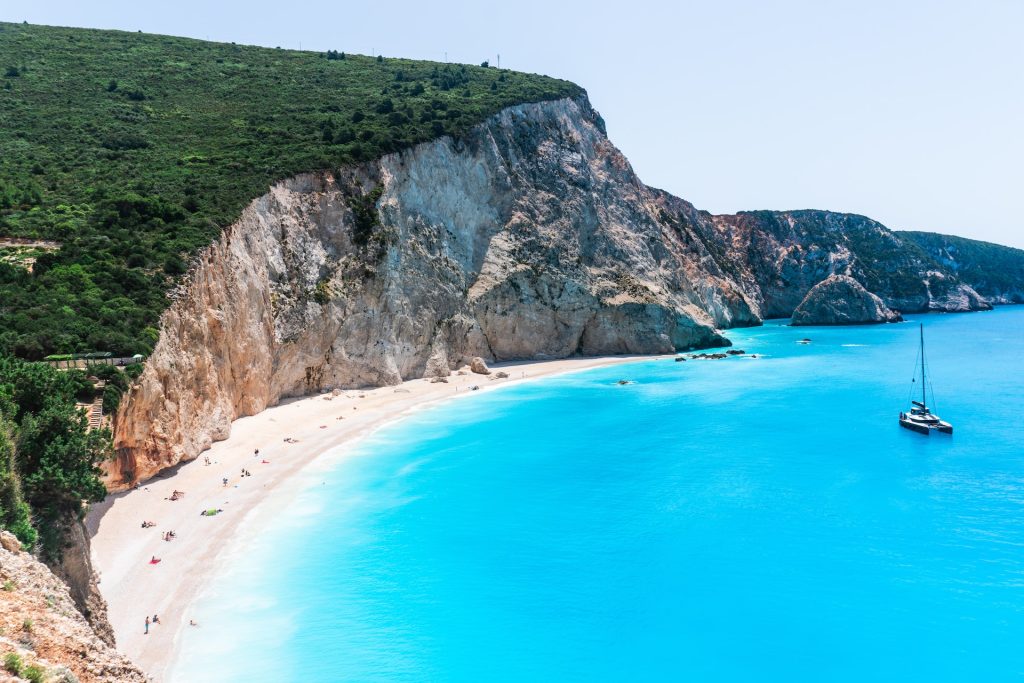Greece, officially known as the Hellenic Republic, holds a unique place in the annals of history. It is a land known not only for its idyllic landscapes, azure seas, and sun-baked ruins, but also as the cradle of Western civilization. This southeastern European country has given the world much more than just the Olympic Games and delectable Mediterranean cuisine. It is the birthplace of democracy, Western philosophy, political science, historical writings, and the sciences. It is the home of great epic poets like Homer and tragic playwrights like Sophocles. Greece is where the universal principles of truth, goodness, and beauty were first explored. It is a place that continuously inspires, charms, and amazes.
The modern country of Greece is situated at the southernmost tip of the Balkan Peninsula, surrounded by the Aegean, Ionian, and Mediterranean Seas. Its topography is primarily mountainous, creating a multitude of microclimates and fostering an impressive biodiversity. Its vast archipelago, comprised of several thousand islands, each with its own distinct personality, gives Greece one of the longest coastlines in the world.
The history of Greece is as vast and varied as its landscapes. Neolithic cultures, such as the Sesklo and Dimini, gave way to the Bronze Age Cycladic, Minoan, and Mycenaean civilizations, which marked the country’s first peak in cultural development. The subsequent Dark Ages were brightened by the dawn of the Archaic period, which paved the way for the Classical period – the zenith of Greek culture.
This Classical period was a golden age where philosophy, science, and the arts flourished. Athens, the radiant city-state, played a central role. It was here that the roots of Western democracy were planted when Cleisthenes introduced a system of political reforms known as “isonomia”, and it was here that a market place or “agora” served as a space for political discourse. This period saw the rise of influential philosophers such as Socrates, whose method of inquiry challenged Athenians to seek truth and self-knowledge; his student Plato, who founded the Academy and wrote dialogues exploring justice, beauty, and equality; and Aristotle, whose vast contributions to various fields laid the foundations for much of Western thought.
Moreover, the Classical period witnessed the creation of remarkable architectural structures, epitomized by the Parthenon, a temple dedicated to Athena, the patron goddess of Athens. This magnificent structure, located on the city’s Acropolis, stands as an enduring symbol of ancient Greece and its profound influence on the world.
Greece’s rich history did not stop there. The Hellenistic period, sparked by Alexander the Great’s conquests, spread Greek culture and language throughout the Eastern Mediterranean and Middle East. This era saw the rise of new philosophical schools, including Stoicism and Epicureanism, and advancements in arts, literature, and science.
Following a period of Roman and Byzantine rule, Greece suffered a devastating four centuries of Ottoman domination. Yet, in 1821, the Greeks, inspired by their illustrious past, successfully waged a war of independence. Modern Greece was born, and the seeds of its evolution into a vibrant, democratic nation-state were sown.
Today, Greece is a thriving country that bridges the East and the West. It is a member of significant international bodies like the European Union and NATO. Its economy, though tested by severe economic crises, is slowly but steadily regaining its strength, buoyed by sectors such as tourism, shipping, and agriculture.
Greek culture, a rich tapestry woven through centuries of influence and interchange, is a living testament to the country’s past. From the traditional music and dance, expressed in the form of ‘rebetika’ and ‘syrtaki’, to its world-renowned cuisine, it is a delight for both the senses and the intellect.
Greek cuisine, an integral part of the Mediterranean diet, is an ode to simplicity and freshness. Olives, feta, moussaka, souvlaki, and the hearty country salad ‘horiatiki’ are some of the familiar offerings. However, it is much more diverse, with unique regional variations and seasonal dishes. Greek food encapsulates the very essence of Greek life – a celebration of family, friends, and the simple pleasures of life.
Literature and the arts also hold a special place in Greek culture. Greece’s literary heritage, spanning millennia, is alive and well today. Its modern writers carry on the tradition of Homer, Euripides, and Herodotus. Works by authors like Nikos Kazantzakis, known for ‘Zorba the Greek’, and poet Constantine Cavafy, have achieved international acclaim.
In visual arts, Greece’s ancient sculpture and architecture have inspired artists worldwide. Today, Greece boasts a vibrant contemporary art scene, with museums and galleries exhibiting works of established and emerging artists. The Athens Biennale and the Thessaloniki Film Festival are testaments to the country’s thriving art and cinema culture.
Greek hospitality, or ‘filoxenia’, is another central element of the culture, stemming from ancient times when it was a moral duty to be hospitable to strangers. Even today, Greeks are known for their warm and welcoming nature, making anyone feel at home in their country.
However, the enduring legacy of Greece is perhaps best captured by its philosophy and intellectual contributions that continue to shape the world. The Socratic method is still used in educational discourse; the ethical teachings of Aristotle continue to influence Western thought, and the Hippocratic Oath remains a guiding principle in medicine. Greece’s profound ideas about democracy, citizenship, and political responsibility are more relevant than ever in our increasingly interconnected and globalized world.
The importance of Greece to the modern world is unquestionable, but the charm of Greece is more than the sum of its historical significance. It’s the combination of golden sunsets over the Aegean Sea, the white-washed houses of the Cyclades, the monasteries of Meteora suspended between Heaven and Earth. It’s the delicious taste of ‘tzatziki’ and ‘baklava’, the sound of the ‘bouzouki’, the passionate debates in the local ‘kafenio’. It’s the spirit of ‘kefi’ – joy, passion, and the love of life.
Greece, with its enduring traditions, dynamic modernity, and timeless beauty, continues to be a muse for dreamers and thinkers alike. From the majestic ruins standing proudly in its cities to the humble olive groves and vineyards that dot its countryside, it is a testament to the resilience and inventiveness of the human spirit.
In Greece, one can truly feel the pulse of history and the vibrancy of human achievement. It is a place where past and present engage in a constant dialogue, reminding us of our collective heritage and our capacity to shape the world around us. It is a land that whispers to the dreamer, sings to the poet, and speaks to the philosopher in all of us. Indeed, to quote the famous words of Percy Bysshe Shelley, “We are all Greeks.”







